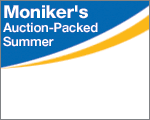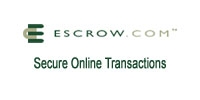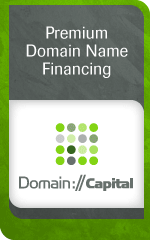|
post on his blog
today. Rick is one of the sharpest guys in the business so
his blog is on my daily reading list, but I don't get a
chance to leave comments at his and other sites I visit as
often as I would like because of time constraints.
I did comment on Latona's
post though because, in addition to the subject matter
being of interest to me, I felt I should respond to a
comment earlier in the same thread that characterized my
view of America's country code, .us, in a
way that while well intentioned, was not quite accurate.
After writing my response, I thought it might be worth
expanding on it a bit and posting it here since many of
our readers are interested in the prospects for ccTLDs as
well. |

Rick
Latona |
|
I have always liked
country codes and with Internet penetration having now reached critical mass, allowing people to find a
local provider of just about any product or service online, the various local ccTLDS are more attractive than ever.
I think the same can be said for IDNs which have many of the same characteristics
as ccTLDs in that they identify a domain as being local in
terms of language in the same way that ccTLDs identify
domains as being local by the geographical location they
represent. Over the past year or two I've noticed in the voluminous
sales data that we receive a steadily increasing number of aftermarket sales for
.es (Spain), .fr (France), .ca (Canada) and many
other country codes in addition to the long-time ccTLD
powerhouses .de (Germany) and .co.uk (Great
Britain).
|

|
With respect to .us I do like the future prospects for the American country code and have a large portfolio of them, but I would have to temper
the characterization of how I view them that was
posted by someone else in Latona's comment section.
They said I have been |
|
talking "passionately" about
.us though I've actually written very little about
the extension. However, when asked about .us (as I
was recently by Forbes
Magazine) I tell anyone who asks that I see
a lot of
potential there. |
.Com is so popular
and heavily mined that many small to medium sized businesses have no chance
of getting a keyword or phrase relevant to their business in .com. If they are
U.S. businesses I think the most logical alternative for them - as it is for businesses in other parts of the world - is their local country code.
My .us sales have increased slowly but steadily every year (in both number of sales and
the average value of each sale) since I started buying them in the spring of 2002 (shortly after the
U.S. government opened the extension to all American citizens.
However I have never said, as the commentator in Latona's
thread indicated, that .us is going to be "huge" in the "near
future." It can take many years for recognition of non .com extensions to develop
(and for most of them recognition never does develop - one reason
why I think the vast majority of proposed new extensions ICANN
plans to start rolling out next year are doomed to
fail - but that's another story).
|
.US may
eventually reach a "tipping point" where it has achieved enough recognition that adoption will accelerate (much
as we have seen .ca, .es, .fr and others accelerate
the past couple of years), but no one knows when or if that will happen. I
personally think that it will happen, but if I had a truly reliable crystal ball I would be at the horse track right now rather than writing this post.
You basically have to go with your
gut instincts on how things will play out over time.
Given how the rest of the world uses domain names, I see .us as a common sense long term bet for
appreciation as the Internet continues to expand and
people need relevant domains that mean something and
are memorable to web users. The cost of entry is low
and if Americans eventually follow the lead of so
many other major countries, the rewards could be
significant. |

|
It is
becoming more and more about "local" on the web so as an American, if I cannot get the term I want in .com, I
now lean toward .us over .net (which, with its much
higher level of recognition, would be most people's preferred alternative)
or other options. The .us extension imparts a valuable message in the domain name by telling surfers where
I am based. In most countries outside the U.S., web
surfers look to their local ccTLD first because they want
to deal with someone from their country who speaks their
language (same with IDNs). There is also an aspect of national pride
there that ccTLDs benefit from.
To a large
degree, despite our cultural and linguistic differences,
people around the world are the same, so I think
Americans, when forced to look for an alternative to a
specific term they want in .com (due to lack of
availability or the high cost of the .com domain they
want), will increasingly give serious consideration to
their .us extension. I don't think anything on the horizon
is going to have any impact on the dominance of .com, but
there are always opportunities in niches and I
think all of the industrial world ccTLDs and the IDNs are
among the most interesting and promising niches out there
right now.
(Posted August
19,
2008) |













